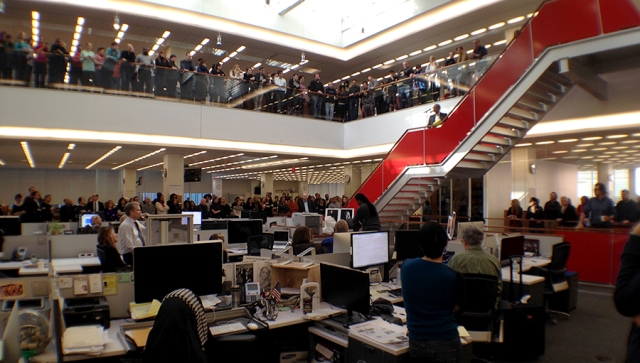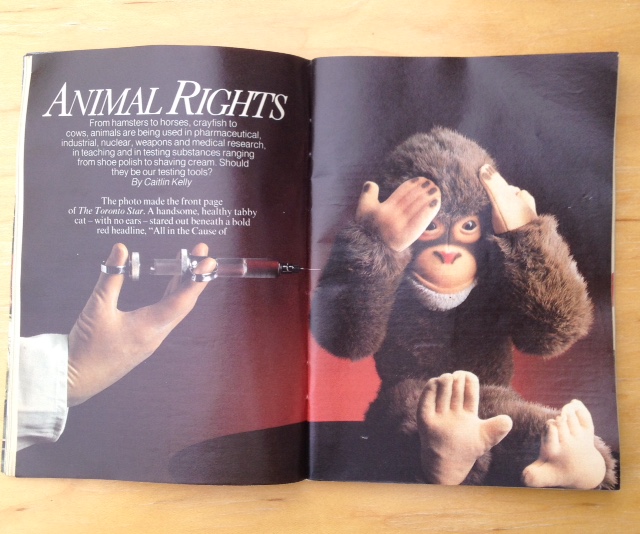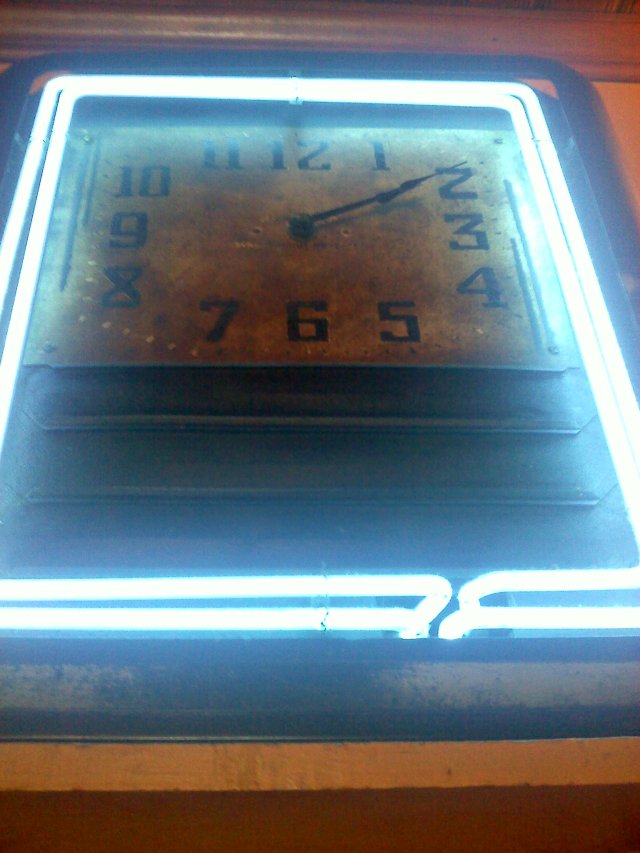By Caitlin Kelly

Are you (yet) a member of “The Precariat”?
It’s also known as The Gig Economy.
From the Alternet:
I caught up with Gerald Friedman, who teaches economics at the University of Massachusetts at Amherst and has written about the gig economy, to find out how this trend happened and what it means to workers and our increasingly unequal society.
Lynn Parramore: How did the shift away from full-time employment to the gig economy come about? What forces drove the change?
Gerald Friedman: Growing use of contingent workers (in “gigs”) came when capitalists sought to respond to gains by labor through the early 1970s, and in response to the victories capital won in the rise of the neoliberal era. Because contingent workers were usually not covered by union contracts or other legal safeguards, employers hired them to regain leverage over workers lost when unionized workers gained protection against unjust dismissal, and courts extended these protections to non-union workers under the “implicit contract” doctrine.
Similarly, the rising cost of benefits due to rising healthcare costs and government protection of retirement benefits (under the 1974 ERISA statute) raised the cost of full-time employment; employers sought to evade these costs by hiring more contingent workers…
GF: Talk of “microentrepreneurs” presents a favorable view of the rise of the gig economy, one consistent with liberal values of individualism and opportunity, even while ignoring the oppression and poverty-wages many find in the gig economy.
There are certainly some who enjoy the uncertainty of irregular employment. When unemployment rates fell to levels traditionally associated with full employment in the late-1990s, however, we saw how workers really feel about gig jobs: they rejected them and the contingent economy contracted.
Given a choice, workers choose careers and jobs, not freelance gigs.
…By removing any social protection, the gig economy returns us to the most oppressive type of cut-throat and hierarchical capitalism, a social order where the power to hire and fire has been restored to employers, giving them once again unfettered control over the workplace.

The American workforce is now one in which an estimated 40 percent of us work with zero safety net, beyond that which we create: (six months’ basic expenses saved, a separate emergency fund, a low-interest line of credit, disability and life insurance.)
Knowing how to survive thrive without a steady paycheck is a crucial new skill.
My husband recently left a secure, well-paid job at The New York Times.
Madness? Perhaps.
But, after 31 years there as a photographer and photo editor, having done almost everything one can do in a career, (including helping them win a team Pulitzer Prize for their 9/11 coverage), and offered a healthy buyout package — which gave us the requisite six months’ of expenses cushion of savings –– he decided to leave a month or so ago.
While he seeks another full-time staff job — which he may not find — he’s discovering how pleasant life can be without a 2-hour train commute, (costing $300 a month), fighting his way crosstown through aggressive crowds and having to book vacation in the first week of January due to seniority issues.
It can be a huge adjustment, no matter how desired, to move from the relative security of a salary that arrives on schedule and is predictable in size and due date to the roller coaster life of the self-employed.
Jose has seen me work freelance since 2005 and knows I know those ropes.
Now he’s learning them as well.
I liked this piece about moving to freelance work from The Guardian — and her realization that giving away your time without financial compensation, even barter, however friendly and helpful — is something no full-time freelancer can afford.
Here’s a comprehensive and helpful guide from the Freelancer’s Union.
And five tips from Time magazine about readying yourself for that leap.

A few of the lessons I’m teaching him:
Don’t rush to say yes to every offer
Just because the client is prestigious and/or your bank balance is running low this month, don’t just leap at any offer you get. Is the client a good fit for your skills, experience, temperament? Have you done your due diligence on that client’s track record of payment and ethical behavior?
Don’t say no to what looks like a lousy offer; consider its every possible benefit
The hourly or day rate might be lower than ideal. It might be a low-prestige gig that pays well, or quickly, or both. The gig might introduce you to a new market and possibly expand your skill set, in effect paying you (even if not very well) to learn on the job.
Never agree to a gig without a clear, written agreement as to the scope of work
One major non-profit recently advertised for a photo editor freelance job, with a long list of responsibilities — with no clue how many hours a day or days a week or weeks per month they were offering. They just kept asking “What’s your day rate?” Nope. Avoid low-balling yourself before you know what they expect in return.

Never agree to a gig without a clear, written, signed agreement/contract
Things go south: your editor quits or gets fired; the budget is suddenly cut; your client hires a new assistant who hates everything you produce. You need protection. Spell out all your responsibilities, all their needs and the dates when you will be paid. It must be signed by both parties.
Everything is negotiable — including your decision to turn down a gig or leave one mid-stream
No one, ever, wants to walk away from a (well) paying client. Sometimes, though, it can be a wise choice to politely recuse yourself from a quicksand scenario where one client is sucking up all your time, energy and patience. Life is too short. (See: emergency fund.)
Negotiate! When someone offers you X fee, always ask for more. It’s been statistically proven that men almost always do, and often get it, while women just say “Thanks!” and get taken cheaply.
Your best sources of work are referrals from people who know, like and respect you and your work
It’s completely counter-intuitive that the fellow professionals with whom you’re now competing for freelance work can be, in fact, your best sources of good opportunities. In an office setting, you can face politics, nepotism, favoritism, seniority, sexism. For every ally and work-wife/husband, you might face a Game of Thrones-ish power struggle with someone.
Freelance life can offer plenty of stress, but if you have a strong, sturdy network of skilled, smart and ethical people who you help as often as possible! — you’ll never starve.

A ferocious work ethic — even if you wake up at noon and work in sweatpants — matters more than ever now
No missed deadlines! No slacking off!
You are selling your time, skills and experience. Never underestimate their value
Every freelance dollar you earn must now 100 percent fund your healthcare, retirement, sick days and paid vacations. You’re also on the hook for paying the full 15 percent of your income to fund Social Security, (employers usually pay 50 percent.) Boost your rates accordingly.

You must take breaks, both in your workday and your year
Without exercise, friends, face to face meetings and pleasure, you’ll quickly burn out. It’s isolating and lonely to work alone every day all day. It’s also tempting to work far too many hours instead of shutting off all electronics and access to email at a set hour so you can enjoy a full life, not just a new form of wage slavery.
Follow my friend Wendy’s three rules whenever possible as you choose (or refuse) a job:
Is it fun? Will I learn something new? Is it well-paid?
It should hit two of three.
Have you moved from a staff job to freelance life?
How’s it going?
What else would you advise a newbie to this way of working?


































